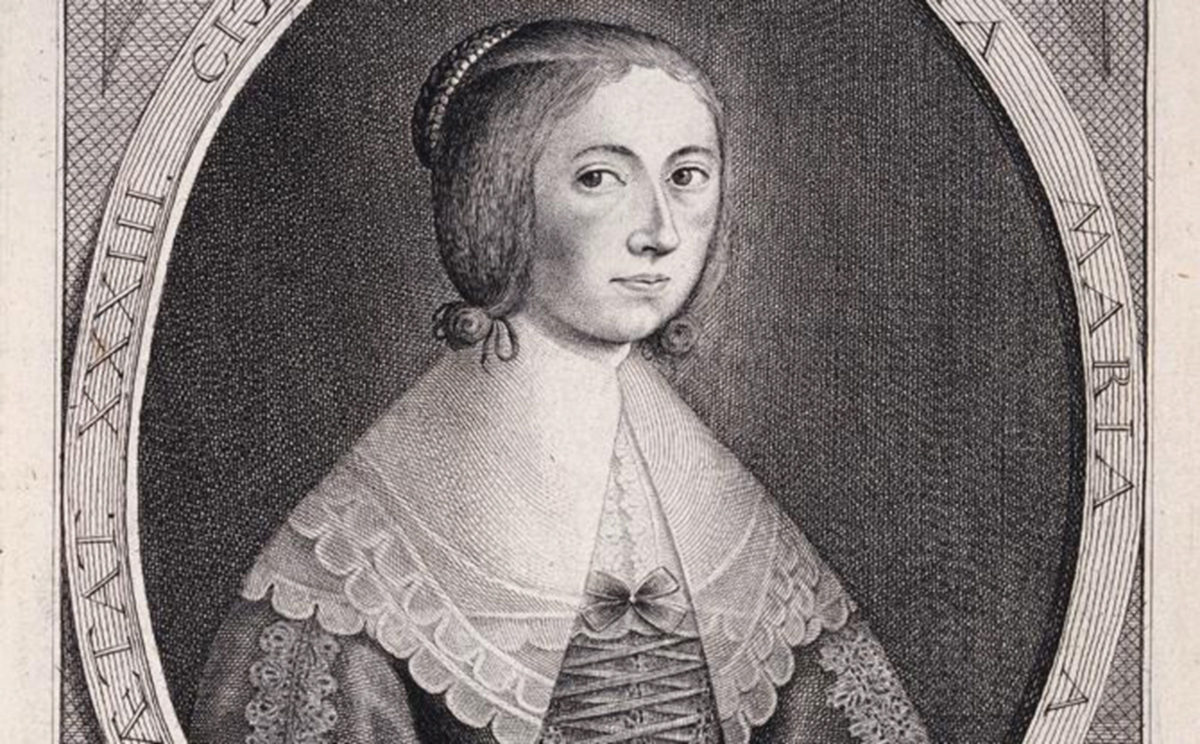Translating Classical Latin, Decoding Gender and Power
Stephen Maiullo, Ph.D. | Associate Professor of Classics
Converting one language into another isn’t just a utilitarian task; a good translator conveys the voice and linguistic nuances of the person whose words are being translated. But what if you are a 21st-century man translating the writings of a 17th-century woman? What challenges does a modern man encounter when decoding the thoughts and words of an early modern woman who had to navigate the gendered power structures of her day?
Dr. Stephen Mauillo knows the feeling. And now, he knows those of Anna Maria van Schurman, too.
For an upcoming book with Hope Senior Research Professor Dr. Anne Larsen, in 2019 Maiullo completed the translation into English of more than 100 handwritten letters and poems by van Schurman, a Dutch intellectual who lived from 1607 to 1678. Does her name ring a bell? Probably not. Yet, she is precisely the kind of woman you wish you had learned more about in history class — worthy not just of a mention, but a prominent role in a textbook chapter on “Accomplished Women of the 1600s.” At a time when women were expected to be aesthetically seen and not intellectually heard, her intelligence and determination could not be contained. In the Netherlands in 1636, she became the first European woman to receive a college education.
Chronicling van Schurman’s life is a long-term project for Larsen, who retired from teaching French at Hope College in 2016, the same year the publisher Routledge issued her biography of van Schurman, ‘The Star of Utrecht’: The Educational Vision and Reception of a Savante. In this second book, Larsen pairs her understanding of 17th-century European cultures and vernacular languages with Maiullo’s fluency in classical Latin to decipher oblique messages that van Schurman wove through her writing.
A speaker of 14 languages, an artist, a poet and a philosopher, van Schurman wanted to extend her education — and knew she needed men’s help to do so. Latin was the scholarly language then, the lingua franca, and she wrote immaculately in that ancient tongue — a rarity for a woman of that day. She employed it to correspond with two prominent Dutch men, theologian and educator André Rivet and poet and diplomat Constantijn Huygens. Van Schurman’s thesis, in Latin, to them: that women should be allowed to receive a formal education. Would they help?
“When she writes to Rivet, her Latin is so hard to read because she is twisting herself in knots in order to play a modesty game,” explains Mauillo. “Her Latin is always crisp, and it’s always in the classical style of Seneca or Cicero. She has to prove that she has the education to play with the boys. Still, she knows that what she is doing is transgressive.”
Aware that she must keep asking men for their permission to be intellectual, van Schurman plays their mind game to prove that she is.
“She does this by quoting, in Latin, the Roman poet Catullus,” describes Mauillo. “In her second letter to Rivet, Anna Maria writes, ‘I’m working on this little book.’ Little book is a phrase Catullus uses in his first poem to describe his poetry. Then she says, ‘It’s nothing but trifles,’ another phrase that Catullus uses in his dedication to describe his poetry. And finally, she says, ‘I’m writing in French, a charming and elegant language’ — a third phrase that Catullus uses. So, she’s coding her knowledge of the classics for him.”
While Maiullo’s knowledge of classical Latin drove his translation work, he says that empathy and imagination also were important tools for decoding subtexts. He and Larsen have far more letters at their disposal that were written by van Schurman than by Rivet or Huygens, and they have no way of knowing what passed between van Schurman and each of the men when they met in person. How might missing letters and conversations lost to history have influenced and undergirded their epistolary “chats”?
“It’s like when you are in a restaurant and hear only one side of a phone conversation,” says Maiullo. “You don’t really know who’s on the other end, or what’s being said, or what the words even mean. They’re all familiar words, but people use them with one another in ways that are not in dictionaries sometimes.”
As far as Mauillo and Larsen can tell, van Schurman could not convince Rivet of her thesis. As for Huygens, he seems to have pursued an unrequited romantic relationship with this woman of wealthy means. “In fact, Huygens wrote about Anna Maria in a letter to another correspondent that is rife for a #MeToo complaint,” Maiullo says.
Which made Mauillo feel sympathetic and apologetic, not just once but often.
“Here I am, a male scholar educated in the classical tradition, not unlike all of these men whose world she was trying to break into. But in the 21st century,” he reflects, “this actually might be the right thing to do — to have male scholars study women in history. I’ve been living in this woman’s brain for the last seven years, trying to understand what it might be like to live on the margins. I can’t say that I know exactly what it’s like to be this woman in her circumstances, but her world has opened up to me.”
Mauillo plans to continue his scholarship on van Schurman’s writing. He and Larsen will soon start to translate her Opuscula — a collection of letters and poems — from Latin and French to English for the first time.



